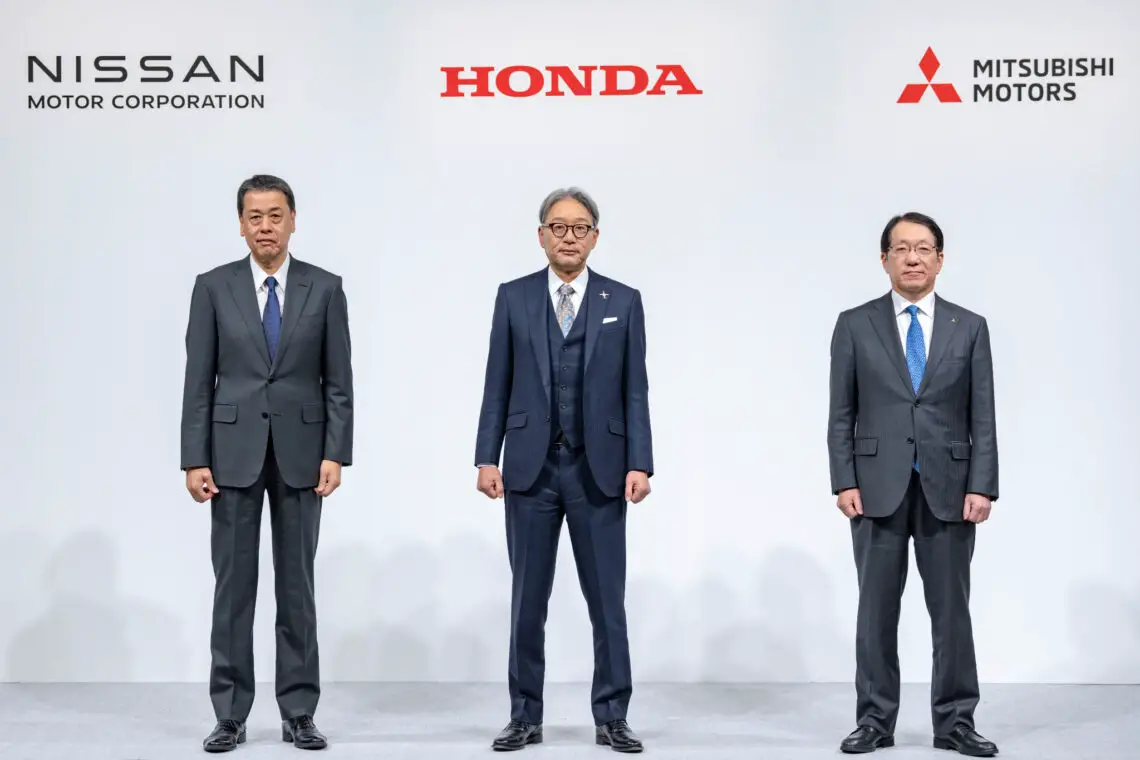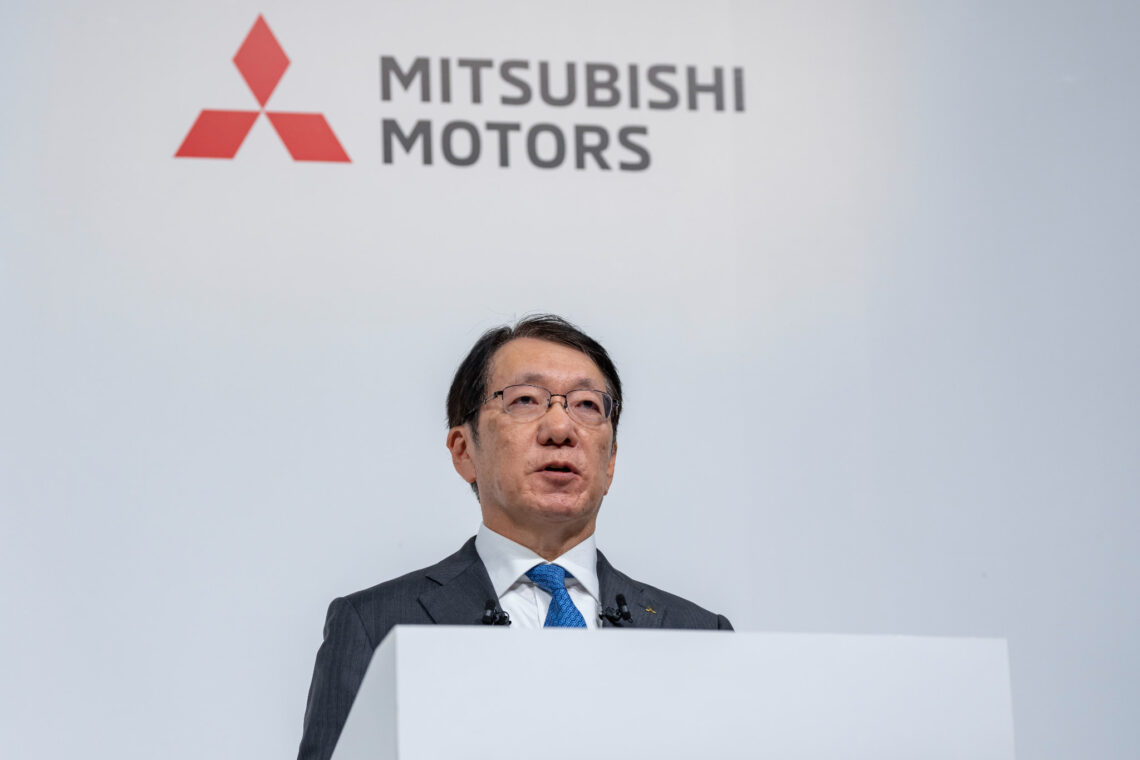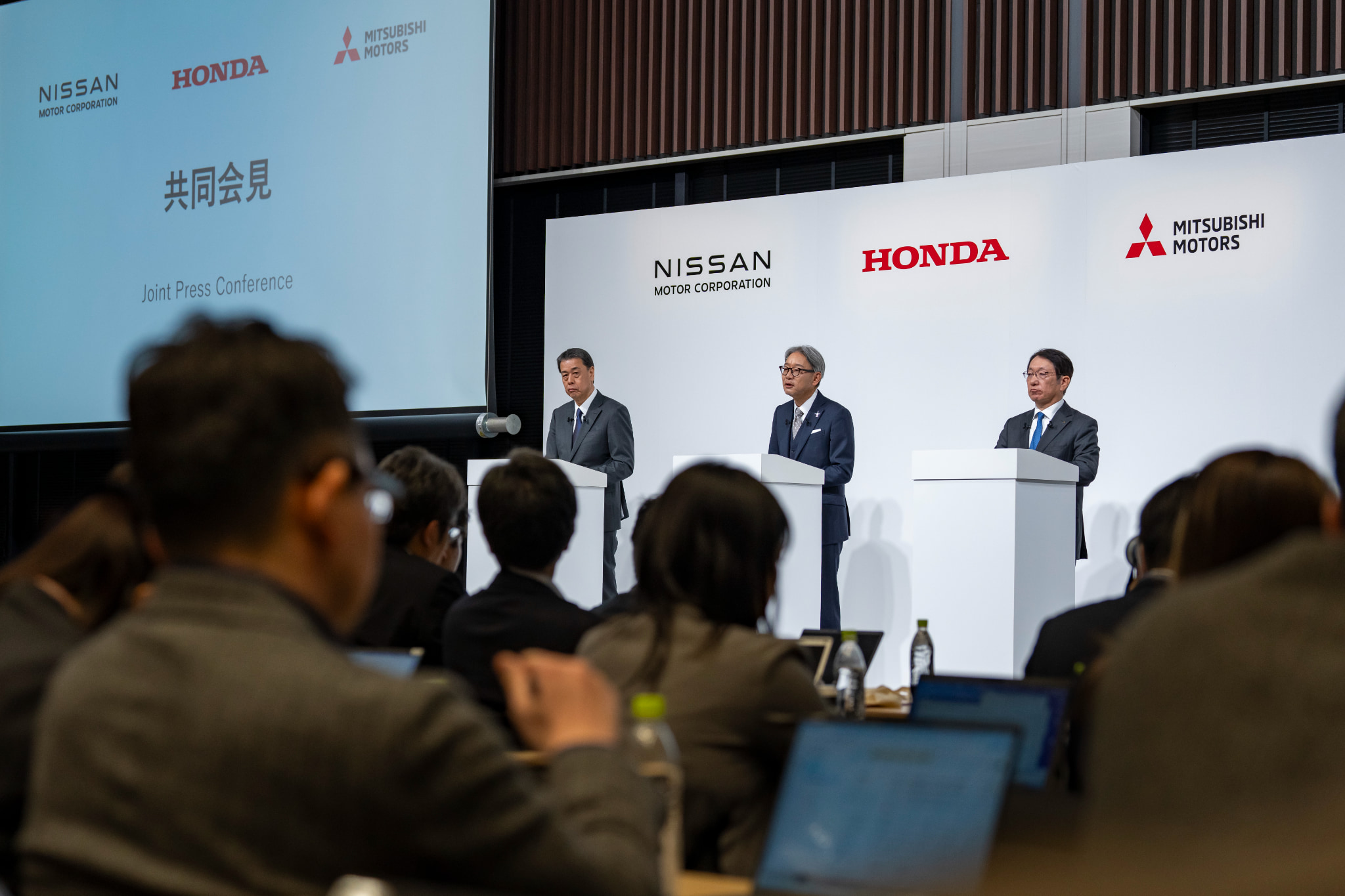Official: Honda, Nissan and Mitsubishi to work together
The first step
Nissan, Mitsubishi Motors and Honda signed an MOU on March 15 on a strategic partnership for the era of vehicle intelligence and electrification. Since then, the three companies have held discussions with the goal of working together in various areas. The goal is a carbon-neutral society and a road-kill-free society.
The second step
On Aug. 1, 2024, the companies signed an additional MOU to deepen the framework of the strategic partnership. They also announced joint research on fundamental technologies in platforms for next-generation software-defined vehicles (SDVs), particularly in areas critical to intelligence and electrification, to enable more focused collaboration.
During this process, Nissan, Mitsubishi Motors and Honda discussed various possibilities and options. At the same time, the business environment for these companies and the broader automotive industry has been changing rapidly, and the pace of technological innovation continues to accelerate. The announced MOU between Nissan, Mitsubishi Motors and Honda is intended as an option to maintain global competitiveness and enable both companies to continue to provide more attractive products and services to customers worldwide.
The Japanese ‘engine’
If business integration can be realized, the three companies can integrate their respective resources such as knowledge, human capital and technologies; create deeper synergies; better respond to market changes; and improve their medium- to long-term business value. Moreover, the three brands can contribute to the development of the Japanese industry as a “leading global mobility company” by integrating the four-wheeler businesses of Nissan, Honda and Mitsubishi Motors and Honda’s motorcycle and energy products businesses. This will strengthen the attractiveness of the brands and bring innovative products and services to customers worldwide.

Conversations on corporate integration
In making the announcement, Makoto Uchida, director, president, CEO and representative of Nissan, said, “Today marks a pivotal moment as we begin talks on a business integration that can shape our future. If realized, I believe that by combining the strengths of both companies, we can deliver unparalleled value to customers worldwide who value our brands. Together, we can create a unique experience that neither company could have achieved separately.”
Unique strengths
Honda president and representative Toshihiro Mibe said, “Creating new mobility value by bringing together resources, including knowledge, talents and technologies that Honda and Nissan have developed over the years, is essential to meet the challenging environmental changes in the auto industry. We are still in the early stages of our evaluation and have not yet decided on corporate integration. But we want to find a direction for this possibility by the end of January 2025 at the latest.”

Integration Preparation Committee
Nissan, Mitsubishi Motors and Honda will set up an integration preparation committee – good one for Scrabble – to facilitate smooth integration and targeted discussions.
Based on the committee discussions, the companies will explore and analyze more specific synergy opportunities. By quickly realizing these synergies, Nissan, Mitsubishi Motors and Honda can strive for a position as a world-class mobility company with sales of more than 30 trillion yen and operating profit of more than 3 trillion yen.
The expected synergies of business integration at this time are:
Economies of scale through standardization of vehicle platforms
- By standardizing vehicle platforms from both companies across product segments, they expect to create stronger products, reduce costs, make development and investment processes more efficient through standardized manufacturing processes.
- The integration is expected to increase sales and production volumes, reducing development costs per vehicle, including for digital services, and maximizing profits.
- Nissan, Mitsubishi Motors and Honda will be better able to respond to global customer needs by better aligning their vehicle offerings, including ICE, HEV, PHEV and EV.
Strengthening development capabilities and cost synergies through integration of R&D functions
- Based on the Aug. 1 MOU, Nissan, Mitsubishi Motors and Honda have begun joint research on fundamental technologies in the field of vehicle platforms for software-defined vehicles (SDVs). Following the integration, the two companies will further integrate R&D functions, leading to more efficient and faster technology development.
Optimization of production systems and facilities
- The companies expect that optimization of plants and energy supply facilities, combined with shared use of production lines, will lead to better capacity utilization and lower fixed costs.
- Strengthening competitive advantages in the supply chain by integrating procurement functions
By streamlining procurement activities and extracting common components from the same supply chain, companies can improve their competitive position.
Realize cost synergies through operational efficiency
- The integration of systems and back-office operations is expected to yield significant cost savings.
Economies of scale through integration of sales finance functions
- By integrating relevant sales finance functions and expanding the scale of operations, the two companies aim to offer new mobility solutions, such as innovative financial services.
Building a talent base for intelligence and electrification
- Bringing together the talents of both companies and technical collaboration will promote further skill development and improve access to talented employees.
Method of business integration and stock exchange listing
- Nissan and Honda plan to establish a joint holding company through a joint stock transaction. This structure must be approved at both companies’ shareholder meetings and by relevant authorities.
- The joint holding company will be listed on the Prime Market of the Tokyo Stock Exchange in August 2026. Nissan and Honda will become wholly owned subsidiaries of the holding company, and their shares will be delisted.
Business integration planning
- Board decision: December 23, 2024
- MOU signature: December 23, 2024
- Final agreement: June 2025 (planned)
- Extraordinary shareholders’ meeting: April 2026 (planned)
- Delisting TSE (Tokyo Stock Exchange): end of July-August 2026 (planned)
- Effective date share transaction: August 2026 (planned)
Share exchange ratio
The share exchange ratio will be determined based on due diligence and independent valuations.
Management structure after integration
Honda will nominate a majority of the joint holding company’s executives. Details on the name, headquarters and structure will be determined later.
CEOs speaking out
On the occasion of the announcement, Nissan President, CEO and Representative Executive Officer Makoto Uchida said, “Honda and Nissan have begun to consider a business integration and will study the creation of significant synergies between the two companies in a wide range of areas. Significantly, Nissan’s partner, Mitsubishi Motors, is also involved in these talks. We expect that if this integration comes to fruition, we will be able to deliver even more value to a broader customer base.”
Honda President and Representative Executive Officer Toshihiro Mibe said: “In this time of change in the auto industry, which is said to occur once every hundred years, we hope that Mitsubishi Motors’ participation in Nissan and Honda’s business integration talks will lead to further social change, and that we will be able To become a leading company in creating new value in mobility through business integration, Nissan and Honda will start the discussion starting today with the goal of clarifying the possibility of business integration around the end of January, in line with Mitsubishi Motors’ consideration. “
Takao Kato, director, Representative Executive Officer and President and CEO of Mitsubishi Motors, said, “In an era of change in the auto industry, the research between Nissan and Honda on a business integration will accelerate the effects of synergy maximization, also adding high value to the cooperating businesses with Mitsubishi Motors. To realize synergies and maximize the strengths of each company, we will also explore the best form of cooperation.”

